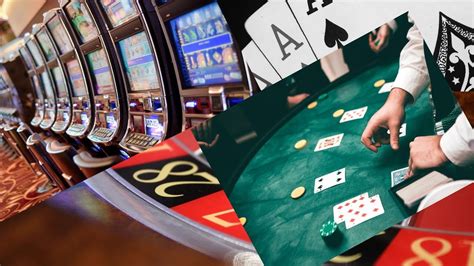Casinos have long held a unique place in the tapestry of modern entertainment, blending excitement, risk, and the possibility of reward in a setting that captivates millions. From the neon-lit streets of Las Vegas to the elegant card tables of Monte Carlo, paitoangka are more than just venues for gambling; they are cultural phenomena that reflect societal trends, economic dynamics, and human psychology.
A Historical Perspective
The concept of gambling dates back thousands of years, with evidence of dice games and betting found in ancient China, Egypt, and Greece. However, the modern casino as we know it began to take shape in the 17th century in Italy, with the establishment of the first official gambling houses. The term “casino” itself comes from the Italian word “casa,” meaning “house,” and initially referred to small villas used for entertainment.
As gambling became more popular in Europe, casinos evolved into luxurious establishments where the elite could gather to indulge in games of chance. The first true casino, the Casino di Venezia, opened its doors in 1638 in Venice. This evolution continued through the centuries, with the establishment of renowned casinos in places like Baden-Baden, Germany, and Monte Carlo, Monaco, which still attract high rollers today.
The Casino Experience: More Than Just Gambling
Modern casinos offer much more than traditional gambling games like poker, blackjack, and roulette. They are entertainment hubs that provide a wide array of experiences, including:
- Dining and Nightlife: Many casinos feature world-class restaurants helmed by celebrity chefs, as well as bars and nightclubs that attract top DJs and performers. This combination of dining and nightlife creates a vibrant atmosphere that draws in visitors seeking more than just gaming.
- Live Entertainment: From concerts and comedy shows to theatrical performances, casinos often host a range of live entertainment options. This diversification enhances the overall guest experience, making casinos destinations for a night out, not just a place to gamble.
- Spa and Wellness: High-end casinos often include luxurious spas offering a variety of treatments, adding a touch of relaxation and indulgence. This focus on wellness reflects a growing trend in the gaming industry, where self-care is becoming increasingly important.
- Shopping: Many casinos are integrated with high-end retail spaces, allowing guests to shop for luxury brands right on the property. This combination of shopping and gaming caters to affluent customers who seek a comprehensive entertainment experience.
The Psychology of Gambling
The allure of casinos is rooted in complex psychological factors. The thrill of taking risks, the potential for big wins, and the immersive environment contribute to the overall experience. Casinos are designed to engage the senses, with vibrant colors, sounds, and lights that create an atmosphere of excitement.
One notable phenomenon is the “near-miss” effect, where players come close to winning but ultimately do not. This experience can create a sense of excitement that encourages players to continue gambling, as they believe they are on the verge of a win.
Moreover, casinos utilize various strategies to keep players engaged, such as offering free drinks, loyalty programs, and complimentary services to encourage repeat visits. This creates a cycle of attraction that can be hard for some individuals to break, leading to gambling addiction in certain cases.
Economic Impact
The casino industry plays a significant role in the economy of many regions. It creates jobs, generates tax revenue, and attracts tourism. For instance, Las Vegas relies heavily on its casinos for employment and income, with thousands of workers involved in various aspects of the industry, from gaming to hospitality.
However, the economic impact is not solely positive. Communities can face challenges related to gambling addiction, crime, and economic disparity. Responsible gaming initiatives and regulations are critical in addressing these issues, ensuring that the benefits of casinos do not come at the expense of vulnerable individuals.
The Future of Casinos
As technology advances, the casino landscape is evolving. Online casinos have surged in popularity, offering players the convenience of gambling from home. This shift has prompted traditional casinos to adapt, incorporating digital elements like virtual reality gaming and mobile apps to enhance the guest experience.
Furthermore, as societal attitudes toward gambling continue to shift, casinos may focus more on promoting responsible gaming practices and creating environments that prioritize player safety and well-being.
Conclusion
Casinos are multifaceted entities that blend risk, entertainment, and culture. They reflect not only the thrill of gambling but also broader societal trends and economic dynamics. As the industry continues to evolve, it will be fascinating to see how casinos adapt to changing preferences and technologies while maintaining their allure as destinations for excitement and entertainment. Whether you’re a seasoned gambler or a curious visitor, the world of casinos offers something for everyone, making them a captivating part of modern life.



